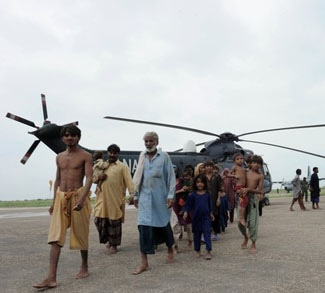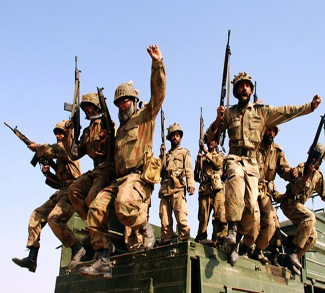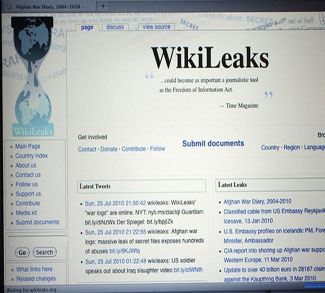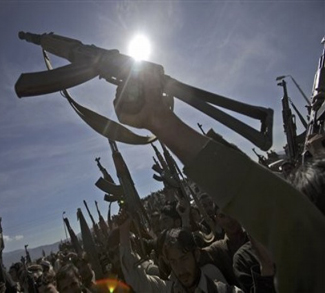FORECAST
Severe flooding in Pakistan has created a dangerous situation for the already-beleaguered civilian government in Islamabad.
Political stability in Pakistan is a product of the interactions between three critical players: the civilian government, the army, and jihadists. This is owing to Pakistan’s history as a constitutional democracy with an army that isn’t afraid of stepping in to ‘protect’ the Pakistani people. The jihadists are in the middle, actively trying to undermine both institutions while occasionally benefiting from sympathizers in the armed forces.
Severe flooding in Pakistan has a real potential to change the power dynamics between these three players. The civilian government will definitely come out of this crisis weaker than it went in. President Zardari’s decision to go through with a trip to Europe while 13 million Pakistanis were being affected by floodwaters will surely cost him his political career, even though he was already in obsolescence cruise-control sporting a 20 percent approval rating. Such is the gravity of the situation that US officials reportedly stepped in to urge President Zardari to scuttle his trip and return to Pakistan.
The Pakistani media has also been heaping scorn on Zardari’s decision to travel to Europe in the middle of a massive crisis. Major television channels have been broadcasting a live split-screen of Zardari being wined and dined in Europe and Pakistani people being terrorized by floodwaters. It seems that this dichotomy has made an impression, as two major private television stations, Geo and Ary, have since been blocked in Karachi and elsewhere.
The public perception of Zardari’s indifference and the civilian government’s slow and ineffective response to the floods must be placed in the context of expectations that were already not being met. In the eyes of its people, the Pakistani government has consistently failed to meet their basic needs or development goals, creating a dangerous situation in which other parties, such as the army or jihadists are able to step in and make gains.
If the floods have caused the civilian government’s star to fall, the opposite is true of the Pakistani army. A stark contrast to Zardari, Army Chief General Ashfaq Kayani was almost immediately on the scene of the flooding, and has repeatedly visited victims all over Pakistan. Furthermore, the armed forces have been able to display their own organizational aptitude and definitely came out the crisis looking more capable than the civilian government.
Finally, there are the jihadists and their charitable foundations. They too were able to make inroads in the space created by government failures. Relief groups like Jamaat-ud-Dawa, which is linked to Lashkar-e-Taiba, had ‘thousands’ of relief workers on the ground in remote villages and towns where a government response had yet to be seen. It’s worth noting that much of the territory in question- northwest Pakistan- is critical to the NATO campaign in Afghanistan. The ongoing violence in Karachi can also be seen as a victory for the jihadist camp, as reports have been circulating that the Taliban had a hand in the political assassination that triggered it.
Thus, flooding in Pakistan could potentially have long term affects on the Pakistani political landscape. The disaster has further frustrated the civilian government’s ability to achieve its development goals; goals that are so important to long-term political stability in Pakistan. Furthermore, the present administration’s image has been tarnished beyond the possibility of rehabilitation. The jihadists have gained an opportunity to exploit this new weakness in the civilian government and further destabilize Pakistan.
And finally, there is the Pakistani army, an institution which so often straddles the line between the other two players. They’ve cultivated a windfall of popular support as a result of the floods. The question is how they will use it.




